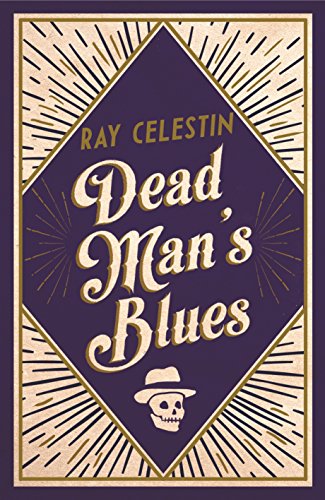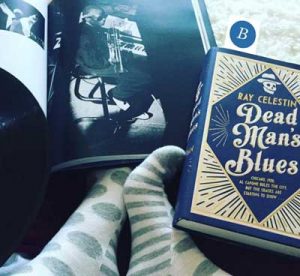Why a Booktrail?
1920s Chicago: Louis Armstrong and Al Capone in the city of Jazz and murder

1920s Chicago: Louis Armstrong and Al Capone in the city of Jazz and murder
Chicago, 1928. In the stifling summer heat three disturbing events take place. A clique of city leaders is poisoned in a fancy hotel. A white gangster is found mutilated in an alleyway in the Blackbelt. And a famous heiress vanishes without a trace.
Pinkerton detectives Michael Talbot and Ida Davis are hired to find the missing heiress by the girl’s troubled mother. But it proves harder than expected to find a face that is known across the city, and Ida must elicit the help of her friend Louis Armstrong.
While the police take little interest in the Blackbelt murder, Jacob Russo, crime scene photographer, can’t get the dead man’s image out of his head, and so he embarks on his own investigation.
And Dante Sanfelippo – rum-runner and fixer – is back in Chicago on the orders of Al Capone, who suspects there’s a traitor in the ranks and wants Dante to investigate. But Dante is struggling with his own problems as he is forced to return to the city he thought he’d never see again . . .
As the three parties edge closer to the truth, their paths cross and their lives are threatened. But will any of them find the answers they need in the capital of jazz, booze and corruption?
 Louis Armstrong and Chicago
Louis Armstrong and Chicago“Compared to the Chicagoans, Louis’ people looked like refugees from some far- away, famished country, and in that instant he realized that his notion of home would be tested in these new surroundings”
“Getting out of the South was battle enough; black folks had been lynched just for being seen at a counter buying train tickets North”
The book is factually accurate wherever possible but the author is keen to point out some facts he has used or slightly altered.
Louis Armstrong did journey to Chicago as he described in his autobiography Satchmo: My Life in New Orleans but his account is mixed with others.
The Mafia funeral at the start of the book is also a mix of several events. Planes full of flowers were indeed used for such funerals and gangster funerals were a grand affair as described.
The Long Count Flight between Gene Tunny and Jack Dempsey actually took place in 1927 but is a real event.
Louis Armstrong’s recording of West End Blues took place in 1928. This was a major event in the Jazz Calendar and signaled modernism and innovation in the jazz world.
The structure of the book is very similar to the structure of Armstrong’s recording of ‘ West End Blues’ as depicted in one of the later chapters.
The arrival of the Paul Whiteman Orchestra in Chicago and the jam sessions between them and Louis actually occurred a few months earlier than said in the novel.
Armstrong and Capone were in fact real friends during this time.
Susan @thebooktrailer
WOW! This isn’t just a novel, it’s an experience – a jazz and blues and booze fuelled chase through the Chicago of Al Capone. It was action from page one and it grabs you from the scruff of your neck and never lets you go. Apart from when the hand shoves you down a back alley, leaves you to wonder how the hell you’re going to work out what’s going on before picking you up and ramming you into the next chapter.
Brilliant stuff. The world of Al Capone and the wonderful Louis Armstrong is brought to life and then some. Music filters through the pages – there’s a playlist to really bring the book to live but I love jazz and blues so much I was singing in my head. It was a real honour to meet these people -especially Louis as he plays a major role in this novel.
It’s more of an immersive experience than a novel – it has everything and fully recreates the world of 1920s Chicago and the time where gangsters controlled cities and blues music was infused in every single Chicago day. This is the city of speakeasies, jazz, the fledgling recording industry, police corruption, drugs, violence, gangsters and blues.
Highly recommended. Buy it now. Live it. You won’t regret it
Author/ Guide: Ray Celestin Destination: Chicago Departure Time: 1920s
Back to Results